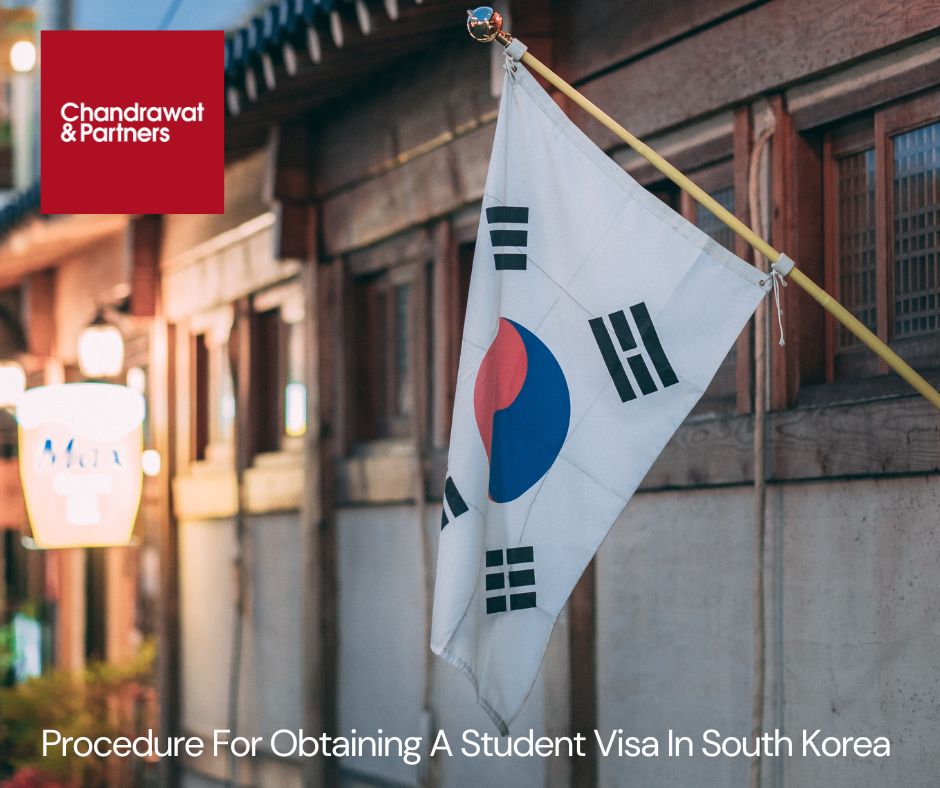
August 1, 2024
PROCEDURE FOR OBTAINING A STUDENT VISA IN SOUTH KOREA
Studying abroad is a dream for many students, offering opportunities for personal growth, cultural exchange, and academic advancement. South Korea, known for its technological advancements, rich cultural heritage, and vibrant cities, has become an increasingly popular destination for international students. If considering studying in South Korea, understanding the visa process is crucial.
TYPES OF STUDENT VISAS
In South Korea, there are primarily two types of visas for international students:
- D-2 Visa (Study Visa): This visa is valid for any student pursuing a bachelor’s, master’s, or doctoral degree at a Korean higher education institution. It is also suitable for exchange students and those attending summer schools in the country.
The D-2 Visa allows to stay in Korea for two years. If course is expected to last longer than that, must renew it before it expires. If students plan to study in Korea for less than 90 days, such as at a summer school, must apply for a specific type of D-2 visa. The D-2-8 visa differs slightly from the longer-term variant in that fewer documents are required to apply. - D-4 Visa (Language Training Visa): This visa is for anyone who is pursuing training or research at a university or research institute. So, if one of the many people who visit Korea to enroll in a university-run language course, this is the option. The D-4 Visa is valid for six months and can be renewed as long as meets the eligibility requirements. The visa can be renewed for another 12 or 18 months, but not beyond that. As a result, stay in Korea for a maximum of two years on a D-4 Visa.
STEP-BY-STEP GUIDE TO OBTAINING A D-2 VISA (STUDY VISA)
- Receive Admission Letter: The first step in visa application process is securing admission to a recognized educational institution in South Korea. Ensure to receive an official acceptance letter from, chosen university or college.
- Prepare Required Documents: Gathering the necessary documentation is a crucial part of the visa application process. The necessary documents are:
- Application Form: Completed and signed. This form can usually be downloaded from the website of the South Korean embassy or consulate in the home country.
- Valid Passport: A valid passport is for at least six months.
- Passport-Sized Photos: Usually, two recent passport-sized color photos.
- Certificate of Admission: Issued by the South Korean educational institution. been accepted.
- Financial Proof: Demonstrate sufficient funds to cover, tuition fees and living expenses in South Korea. This could include bank statements, scholarship awards, or a financial support letter from a sponsor.
- Health Certificate: Some countries require a health examination certificate to prove good health. Check the specific requirements of the South Korean embassy or consulate in the country.
- Visa Application Fee: Payable at the time of application. Both the D-2 and D-4 visas require an application fee, which normally ranges between USD 40 and 90. The longer the plan remains, the greater the price will be. The most expensive visas are those that allow one to leave and return to Korea multiple times. Fees may vary based on nationality and visa type.
- Submit Application: After all the required documents, submit a visa application to the nearest South Korean embassy or consulate. If an interview is required, ensure to attend it promptly and provide all requested information truthfully.
- Wait for Processing: Visa processing times can vary depending on the embassy or consulate and other factors.
- Receive Visa: If the visa application is approved, the passport will be stamped with the D-2 visa. Carefully check all details on the visa to ensure accuracy before traveling to South Korea. Travel to South Korea within the visa validity period (usually within 3 months of issuance). Upon arrival, must apply for a residence permit (Alien Registration Card) at the local immigration office within 90 days.
While the general steps for the D4 and D2 visas are similar, the D2 visa typically requires additional documentation related to degree enrollment, such as proof of previous education and possibly higher financial requirements. Check the specific requirements and processes, as they can vary slightly by institution and location.
CONCLUDING REMARKS
Studying in South Korea offers a unique opportunity to immerse, in a dynamic culture while pursuing academic goals. By understanding and following the visa application process outlined above, can embark, on an educational journey with confidence. With proper preparation, experience as an international student in South Korea can be both rewarding and memorable.
HOW WE MAY HELP ?
- Expert Guidance: Our experienced team offers personalized advice tailored to, every situation, ensuring to understand every step of the visa application process.
- Document Review: We can help in reviewing and preparing the application documents to minimize errors and streamline the process.
- Regulatory Updates: Immigration regulations can change. We keep, informed about any updates or changes that may affect the application.
- Post-Visa Support: Our services extend beyond the application process. We can assist with residency, extensions, and any related matters that may arise during the studies.
For more information or queries, please email us at
enquiries@chandrawatpartners.com
Key Contact

Surendra Singh Chandrawat
Managing Partner

